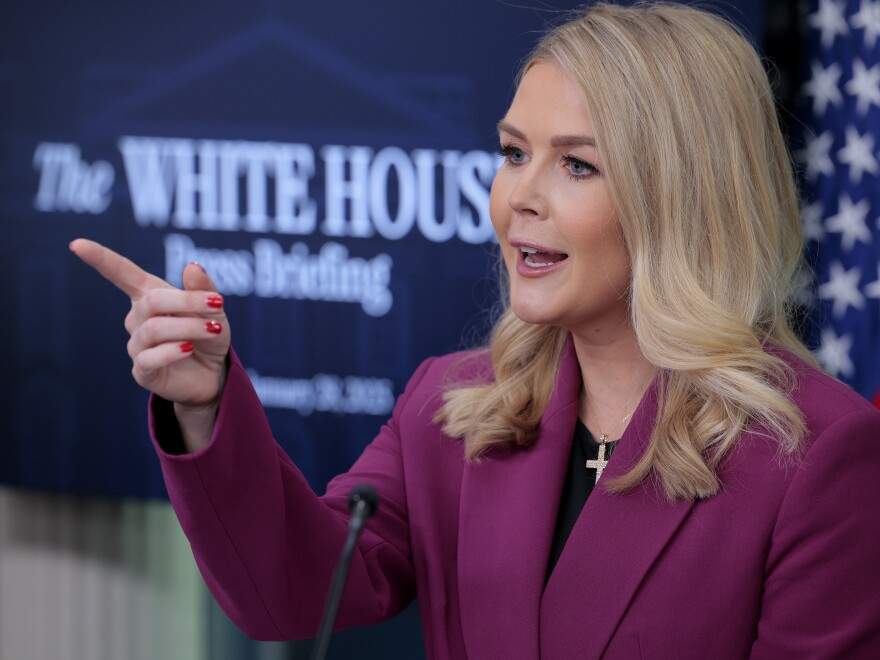United States Press Secretary Karoline Leavitt recently made headlines after delivering a sharp warning to journalists about their coverage of President Donald Trump, specifically regarding the use of the term “Gulf of America.” During a press briefing, Leavitt criticized the Associated Press (AP) for refusing to adopt the new name, which was introduced through an executive order signed by Trump. The AP has stated it will continue to refer to the body of water as the “Gulf of Mexico,” sparking a heated clash between the news organization and the Trump administration.
The dispute escalated when the White House barred AP reporters from attending two presidential events this week. Despite the pressure, the AP has stood firm, maintaining that the name “Gulf of Mexico” has been in use for over 400 years and is widely recognized globally. The AP emphasized that the name change only applies within the United States and that international audiences may not understand or recognize the new term.

Leavitt, however, defended the administration’s stance, arguing that it is essential for media outlets to accurately reflect the official designation. She pointed out that major companies like Apple and Google have already updated their maps to include “Gulf of America.” Leavitt also addressed the White House’s decision to exclude AP reporters from certain events, stating that access to the president is a privilege, not a right. She accused some journalists of spreading lies and vowed to hold them accountable.
This isn’t the first time the Trump administration has clashed with the media. During Trump’s first term, tensions with outlets like CNN were frequent, culminating in the revocation of a reporter’s press pass. Now, just weeks into his second term, similar conflicts are resurfacing. The AP’s refusal to comply with the name change has led to speculation that its reporters may lose access to Air Force One, a privilege long granted to the organization.
As the standoff continues, the debate over the “Gulf of America” highlights broader issues of press freedom and the relationship between the media and the government. The Trump administration’s aggressive approach has raised concerns among journalists and free speech advocates, who argue that such actions undermine the First Amendment.


